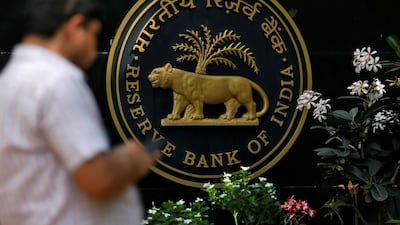Emerging market economies may find it more difficult to refinance debt as countries look to raise interest rates to tackle higher inflation, the Institute of International Finance said.
Central banks in most major emerging markets – except for Brazil, Russia, Turkey, and Ukraine – are yet to increase interest rates even though rhetoric has turned more hawkish in recent months, the Washington-based institute said in a report authored by its deputy chief economist Elina Ribakova and economist Benjamin Hilgenstock.
“Yet a look at a broader EM and FM (Frontier Market) universe of 40 inflation-targeting central banks shows that the hiking cycle has clearly begun in the first quarter and second quarter of 2021,” it said.
Globally, central banks and governments have pumped $25 trillion into economies to cushion the impact of the pandemic and protect companies and industries. That flow of money has raised concerns in the US and Europe about rising inflation. Surging oil prices are also having an impact on the cost of manufacturing and transportation, the IIF said.
“Historically low inflation in EM and FM allowed for supportive monetary policies during the pandemic, which, via lower yields, helped finance larger deficits. While many economists think that higher debt accumulation is warranted in developed markets due to exceptionally low rates, we believe that the argument in the case of EM and FM is more nuanced.”
In Central and Eastern Europe, April inflation numbers point to rising price pressures across the Czech Republic, Hungary, Poland and Romania which, if sustained, would likely force monetary policy makers’ hands sooner than the market was expecting, the IIF said.
In Russia and Ukraine, the IIF expects further hikes as inflation is set to remain above targets, while South Africa’s SARB is likely to keep its accommodative policy stance as inflation remains subdued.
“In Turkey, we project that a lagged effect of a weaker lira will keep inflation at elevated levels, leaving the CBRT little choice but to postpone easing to the fourth quarter.”
In Asean (Association of South East Asian Nations) countries, accommodative monetary policies will remain in place as inflationary pressures are moderate, except in the Philippines, it added.
Indonesia’s central bank eased monetary policy in February and has kept rates on hold since, while in India the RBI will likely continue its accommodative stance due to domestic Covid1-9 pressures.
India, Asia's third-largest economy, has been recording a large number of coronavirus cases in the last two months. However, infection rates have reduced in the last two weeks due to movement restrictions introduced in a number of states.
In Latin America, surging commodity prices have fuelled inflationary pressures despite negative output gaps, reducing the scope to maintain accommodative monetary policies, the IIF said in the report. In addition, relative price shifts due to pandemic-induced changes in consumer behaviour and base effects have made inflation dynamics more challenging.
“We expect the BCB (Brazil Central Bank) to tighten policy further in the coming months to contain above-target inflation and anchor expectations.”
In Mexico, higher-than-expected inflation due to supply shocks, agricultural and energy price pressures, and the reduction of slack in the economy have prompted Banxico to pause easing.
“Rising inflationary pressures have prompted a number of EM and FM central banks to tighten monetary policy conditions,” it said.
“While the cost of funding in the local currency remains relatively low in historical comparison, some countries are more prone to shocks. Among key EMs, we are especially concerned about Brazil and South Africa – due to large fiscal deficits – as well as Turkey.”


